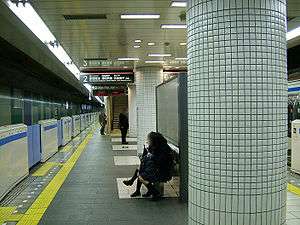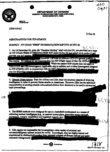Fogging (censorship)
Fogging is used for censorship or privacy. An area for a picture or movie is blurred to obscure it from sight. This form of censorship is used for sexually related images/scenes, hiding genitals, pubic hair, or sexual penetration of any sort. Pixelization is a form of fogging. In Japan, where it is called bokashi, fogging is employed on most films that show pubic hair or genitals, including hardcore pornography.[1]

This form of editing also appears in television programs where an individual's face may not be shown due to legal or privacy concerns. As it does not contrast with the surrounding image very much, it is preferable over most other forms of censorship.. However, unlike other forms of visual censoring, it does not allow to preserve any information about the original stimulus.[2] Fogging is also used if the scenes which are too bloody and gruesome to be rendered even in black and white, over vehicle license plates, mainly to protect the identities of the vehicles' owners, and over branded items and specific company names to obscure their background.
See also
References
- da Silva, Joaquin (2014-03-18). "Obscenity and Article 175 of the Japanese Penal Code: A Short Introduction to Japanese Censorship". Retrieved 2014-05-08.
- Besançon, Lonni; Semmo, Amir; Biau, David; Frachet, Bruno; Pineau, Virginie; Sariali, El Hadi; Soubeyrand, Marc; Taouachi, Rabah; Isenberg, Tobias; Dragicevic, Pierre (2019). "Reducing Affective Responses to Surgical Images and Videos Through Stylization". Computer Graphics Forum. 39 (1): 462–483. doi:10.1111/cgf.13886. ISSN 0167-7055.
- Weisser, Thomas; Yuko Mihara Weisser (1998). Japanese Cinema Encyclopedia: The Sex Films. Miami: Vital Books: Asian Cult Cinema Publications. pp. 21–66. ISBN 1-889288-52-7.
